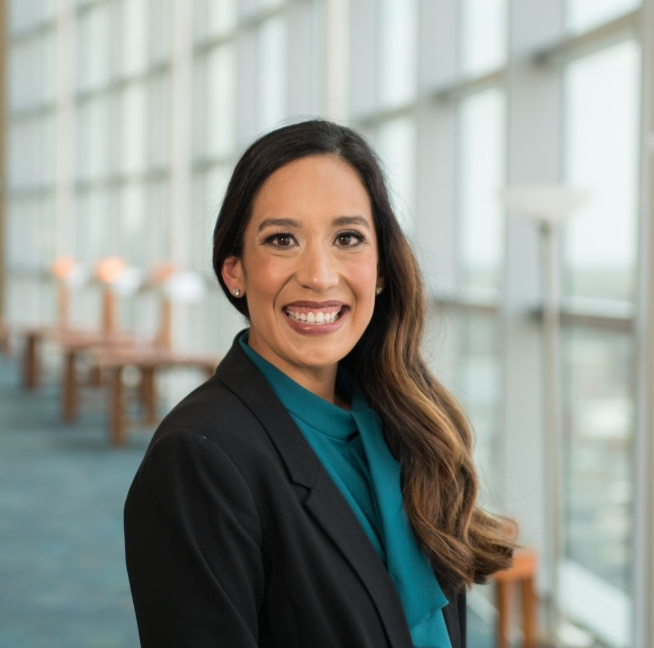
“What If? Translating Your Occupational Therapy Practice & Research for Civic Engagement”
A Retrospective on Dr. Victoria Wilburn’s 2024 OOTA Keynote Address
Erika Eustaquio, OTD, OTR/L
Doing. Being. Becoming. Belonging. These four powerful words served as the framework of Dr. Victoria Wilburn’s keynote speech at the Ohio Occupational Therapy Association’s annual conference last fall at the Hilton Polaris in Columbus. She brought these principles to life, encouraging occupational therapy practitioners (OTPs) to take action (Doing), stay present as leaders and advocates (Being), grow personally and professionally (Becoming), and foster inclusive, connected communities (Belonging). Drawing from her experiences as an occupational therapist, educator, researcher, policymaker, mother, wife, and much more, she demonstrated how embracing these principles can drive real change, inspiring others to harness their strengths and create lasting impact.
Harnessing Occupational Therapy’s Unique Strengths
Wilburn’s keynote kicks off by highlighting OTPs’ distinct ability to establish trust, practice therapeutic listening, and recognize the humanity in others, as these skills are essential not only in clinical care but also in advocacy and leadership. By leveraging these strengths, OTPs can amplify their expertise and unlock new avenues in their journeys to address societal and community challenges at a governmental level.
Pursuing Bold, Audacious Dreams
During the speech, Wilburn encourages the audience to write down their biggest dreams on a piece of paper. Wilburn shares that her bold, audacious dream was to integrate occupational therapy into behavioral health care teams, ensuring that OTPs could directly evaluate patients, provide treatment, and play a vital role in comprehensive mental health services. She shares how her dream of integrating occupational therapy into public policy became reality through determination and key accomplishments. Wilburn’s path included organizing Indiana’s first OT Advocacy Day, gaining recognition for occupational therapy in behavioral health services under Medicaid, and collaborating with legislators to push for policy advancements that highlighted OTPs’ role in community health. Wilburn discusses the concept of self-perceived roadblocks to achieving big dreams, emphasizing that everyone’s path is unique, inspiring OOTA members to see those moments of doubt not as barriers, but as invitations to think bigger and act with courage. By having the courage to pursue these bold dreams, OTPs can elevate the profession and reshape healthcare and communities for future generations.
“Instead of trying to walk a path that maybe wasn't meant for me, I had to be okay with blazing a trail on my own”
The Power of Community
Throughout Wilburn’s speech, the power of community is a notable theme that serves as a key factor in societal change. She highlights the need for translational science and community-centered approaches, as well as her journey into political advocacy. Wilburn discusses the complexities of substance addiction and recovery, and its impacts on occupational performance. She applied her therapeutic skills as an OT researcher to deeply listen and learn from the lived experiences of teens and parents navigating recovery in Indiana. These honest conversations helped her build real partnerships and turn small moments of understanding into lasting impact. By staying flexible, following her own path, and stepping into advocacy beyond traditional roles, Wilburn reminds us that our individual journeys, our struggles, and our passions all have the power to drive change, not just for those we serve, but for the future of our profession and the communities we care about.
“It was about wanting unity, wanting community, understanding that in order to move forward, we have to move forward together”
Carrying the Work into 2025
In her closing challenge, Dr. Wilburn asks, “Who among us will step forward as the next OT leader?” She urges practitioners to apply their expertise beyond clinical settings, advocating for equitable healthcare, stronger communities, and policy change. OOTA has an opportunity to transform her message into action. Addressing local needs while amplifying the voices of OTPs can be achieved by cultivating authentic community partnerships. Additionally, mentorship programs can support practitioners in their growth from clinicians to leaders. Wilburn’s speech reminds us that the power of occupational therapy lies in collective action, making 2025 a year for OOTA to lead with intention, purpose, and commitment. As we embrace the principles of Doing, Being, Becoming, and Belonging, we should ask ourselves, how can these four words shape our personal and professional journeys? Occupational therapy practitioners are uniquely equipped to drive meaningful change, let’s all take the next step together this year. Thank you Dr. Wilburn for a phenomenal speech!


Leave a Reply